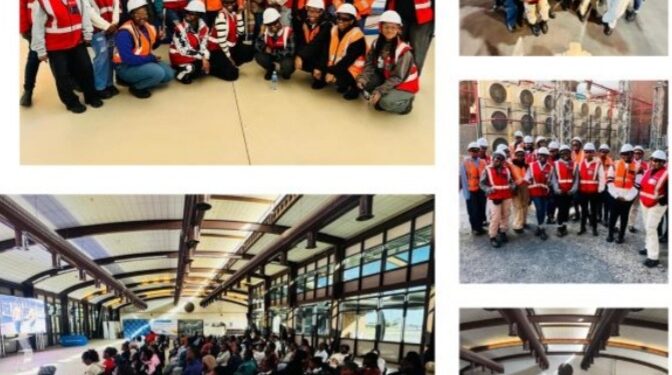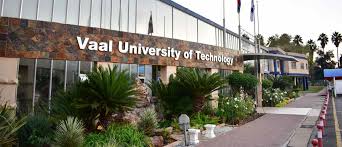By Zanele Makola
A group of female engineering students from the Tshwane University of Technology (TUT) recently had the opportunity to explore Eskom’s Kusile Power Station in Mpumalanga, gaining invaluable insight into one of South Africa’s most significant energy infrastructure projects.
The educational visit included 75 first-year students from the Faculty of Engineering and the Built Environment (FEBE), based at TUT’s eMalahleni Campus. The students are enrolled in Higher Certificate and Diploma programmes in Electrical Engineering. The aim of the excursion was to bridge the gap between academic theory and practical experience in the energy sector.
Kusile Power Station, currently South Africa’s largest infrastructure development, is projected to contribute 4,800 megawatts (MW) to the national grid once fully operational. It is also Africa’s first power station to use Wet Flue Gas Desulfurization (WFGD) technology—an advanced emissions control system that aligns with international environmental standards by reducing sulphur dioxide emissions.
During the visit, students toured several parts of the facility, including the newly commissioned Unit 6, which was officially integrated into the national grid on 23 March 2025. The hands-on experience deepened students’ understanding of large-scale electricity generation and highlighted the operational intricacies of a coal-fired power station.
Dr Bolanle Abe, Academic Manager for the Department of Electrical Engineering at the eMalahleni Campus, underscored the importance of such initiatives in shaping industry-ready graduates.
“This initiative reinforces FEBE’s commitment to embedding practical learning into the curriculum. Exposing students to real-world engineering environments early in their academic journey motivates and prepares them for the demands of the profession,” said Dr Abe.
First-year student Paballo Modiselle described the experience as both unforgettable and inspiring.
“Visiting Kusile Power Station expanded my understanding far beyond textbooks. Seeing massive boilers, turbines, and control systems in action helped me appreciate the complexity of energy production. Hearing engineers explain how they manage efficiency and address environmental concerns clarified my career goals and deepened my commitment to becoming an electrical engineer.”
Another student, Tebogo Leopeng, echoed the sentiment, adding that the excursion highlighted the critical role engineers play in shaping society.
“This visit gave us valuable insight into power generation and environmental management. I was especially impressed by the plant’s scale and safety protocols. Learning about the Flue Gas Desulfurization system, which removes harmful substances from emissions, showed me that sustainable engineering is possible and necessary. As someone passionate about environmentally responsible innovation, this experience was truly motivating.”
















